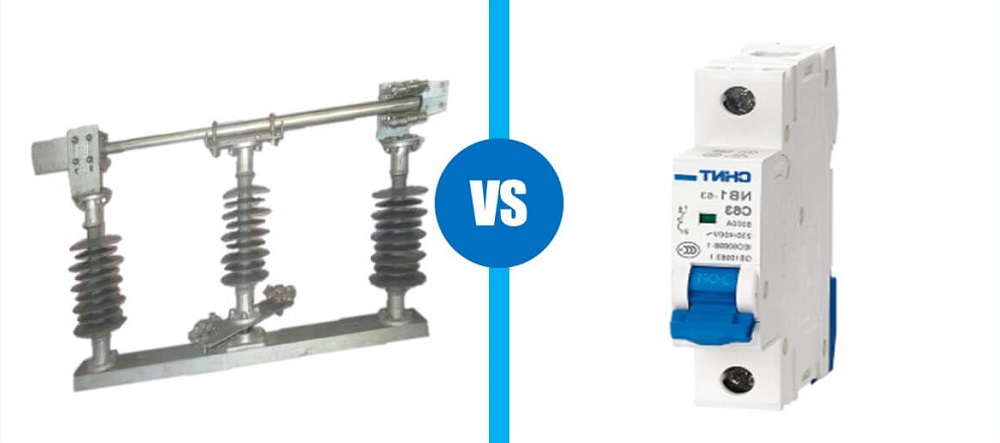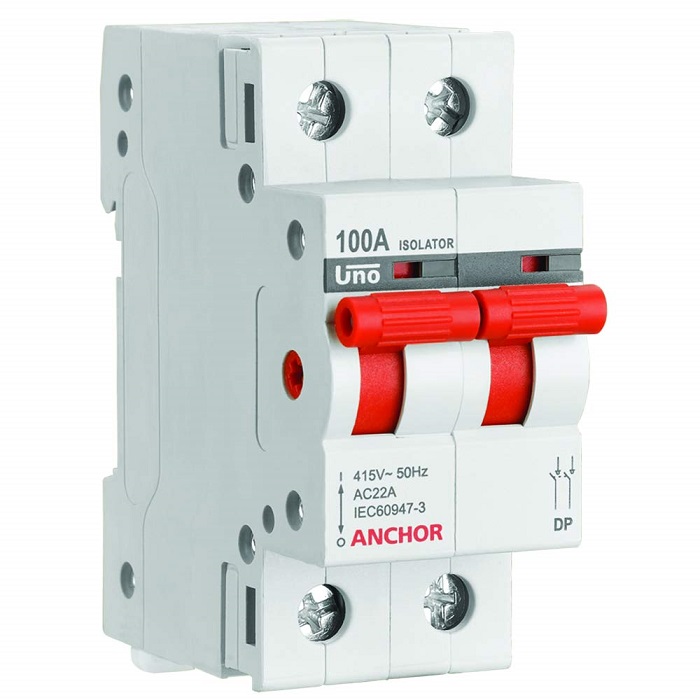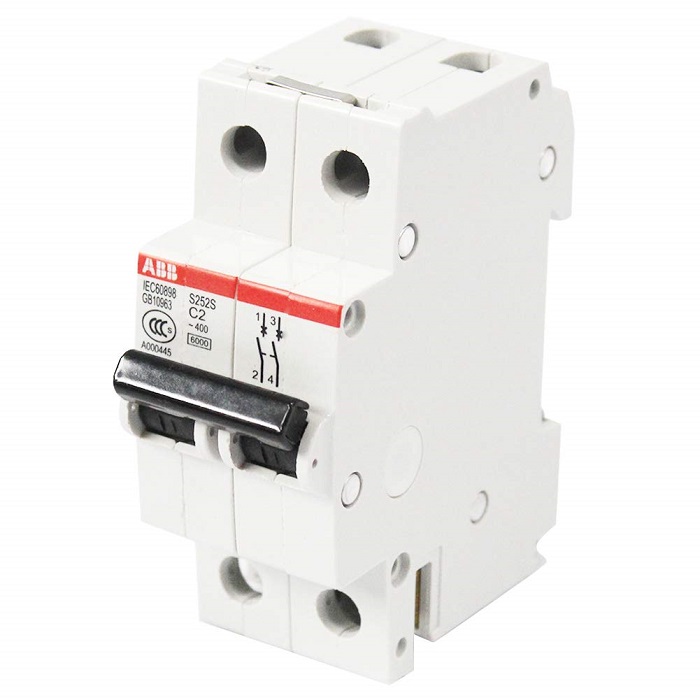A crucial component of a circuit is its switch. The switch acts as a gate that allows the movement of charges through the circuit. Isolators and circuit breakers are both switches commonly found in industrial installations to isolate a section of the power system. They are closely related to each other, having a similar principle like disconnection for separating the parts of the electrical circuit from the system. However, several differences can manage to draw a line between these two. We are going to discuss the difference between isolators and circuit breakers in the upcoming paragraphs. Read this new Linquip blog to find out more about them.
What is an Isolator?
First, let us have a quick review of isolators and circuit breakers before we dive into the differences between these two.
An isolator is one type of switching device, and its fundamental function is to make sure that a circuit is totally not triggered in order to perform the preservation. It is also recognizable like isolation switches to isolate a fraction of the electrical circuit when it is required. It is generally used at the end of the breaker to repair or to replace. An isolator blocks the DC signals & allows the AC signals to flow.
It is a separate part of the system that is created for safe maintenance. These switches are applicable to the industrial distribution of electrical power, etc. One thing is to make sure beforehand whenever we are using an isolator that the current flow through is zero or within limits of safety.
What is a Circuit Breaker?
A circuit breaker is a protective apparatus that works like a switch. It is installed in a circuit in order to stop the flow of current whenever necessary. It can be operated for controlling and protecting the electrical system in which it is introduced. This device finds use to control the flow of current same as a fuse. It breaks the circuit in case of fault conditions like short circuits and overloads. A circuit breaker is suitable for handling heavy load currents and is attached to devices like transformers etc.
Isolator vs. Circuit breaker
There is a description of the difference between an isolator and a circuit breaker by considering several factors. Various factors like those mentioned further are taken into account while selecting an isolator or a circuit breaker for a particular application.
The following factors show the main differences between isolators and circuit breakers.
Construction
- The isolator is a type of simple mechanical switch.
- The circuit breaker consists of an electromechanical switch and a relay in a single box.
Type of Device
- The isolator is an off-loading device. It can only be operated when the power supply is off.
- The circuit breaker is an on-load device. It operates when the power supply is on.
Operation
- The isolator is not designed for automatic switching and operates manually.
- The circuit breaker is operated both automatically and manually.
Function
- When a fault occurs in a substation, then the isolator cuts out a portion of a substation. The other apparatus works without any intrusion.
- The circuit breaker is like an Automatic circuit breaker (ACB) or Miniature circuit breaker (MCB) that trips the entire system if there is an error occurs.
Withstand Capacity
- The isolator has a low withstand capacity when contrasted to the circuit breaker.
- The circuit breaker has a high withstand capacity at the condition of on-load.
Contacts
- The isolator has main and moving arms/blades.
- The circuit breaker has main as well as arcing contacts.
Trap Charges
- The isolator can remove the trap charges.
- The circuit breaker can’t remove the trap charges.
Insulation
- Isolator does not require insulation or an insulation medium.
- Circuit breaker, Air, Oil, Vacuum, or SF6 gas are used as an insulation medium.
Interruption
- The isolator does not interrupt any current. It only isolates the circuit for maintenance purposes.
- The circuit breaker interrupts the normal as well as short circuit currents during faults.
Current Flow Operation
- The isolator should not be opened when the current is flowing through it. The current flow should be disconnected by turning off the circuit breaker before.
- The circuit breaker can be opened during the flow of current through it. It can be operated in both cases where the power supply from the utility pole is on or off.
Earth Switch
- Single or double earth switches can be included in the isolator.
- Earth switches are not included in the circuit breakers.
Over-Voltage During Switching
- In the isolator, there is no overvoltage rise during switching as it is an off-loading device.
- In circuit breakers, there is a chance of a rise in overvoltage during switching operations.
Few other differences between isolators and circuit breakers to keep in mind:
- Isolators are used in industrial applications, while circuit breakers find their applications in industrial as well as domestic applications.
- Isolators are never used to make or break load and fault currents, while the circuit breaker is designed to make or break load and fault currents.
- The isolator is not built with arc quenching methods, while a circuit breaker is always provided with some arc quenching techniques.
- Isolator operates after the circuit breaker all the time, but a circuit breaker should operate before the isolator.
- The isolator is provided on both sides of the circuit breaker, while a circuit breaker is installed within the circuit.
With all of that said, it is quite clear that there are significant differences between isolator and circuit breaker, and many assume that one works better than the other. The truth is that they are both vital for any electrical setup.
Conclusion
So, there you have a detailed description of the difference between an isolator and a circuit breaker. If you enjoyed this article in Linquip, let us know by leaving a reply in the comment section. Is there any question we can help you with? Feel free to sign up on our website to get the most professional advice from our experts.
Buy Equipment or Ask for a Service
By using Linquip RFQ Service, you can expect to receive quotations from various suppliers across multiple industries and regions.
Click Here to Request a Quotation From Suppliers and Service Providers
Read More on Linquip





